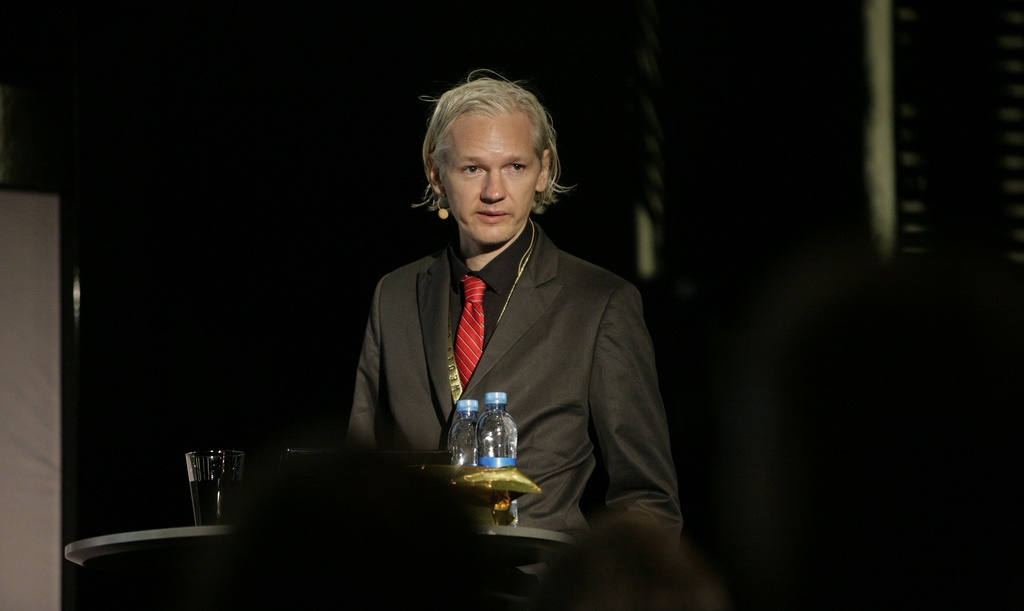Assange’s Persecution Highlights Dangers to the Freedom of Speech and Free Media
Nov 22 2018 / 2:31 pm
If you are a journalist and you discover something that is clearly unethical, and possibly even illegal, and you choose to report it what happens next? Well, you could win a Pulitzer Prize or, on the other hand, you might wind up hiding in the Ecuadorean Embassy in London for six years.
Julian Assange is the founder and editor in chief of the controversial news and information site WikiLeaks. As the name implies, since 2006 the site has become famous, or perhaps notorious, for its publication of materials that have been leaked to it by government officials and other sources who consider the information to be of value to the public but unlikely to be accepted by the mainstream media, which has become increasingly corporatized and timid.
WikiLeaks became known to a global audience back in 2010 when it obtained from US Army enlisted soldier Bradley Manning a large quantity of classified documents relating to the various wars that the United States was fighting in Asia. Some of the material included what might be regarded as war crimes. Manning’s motives for sharing the information can perhaps be debated but he subsequently regarded himself as a whistleblower, a claim that was ignored, and was sentenced to 35 years in military prison for his mishandling of classified information.
WikiLeaks again became front page news over the 2016 presidential election, when the website released the emails of candidate Hillary Clinton and her campaign manager John Podesta. The emails revealed how Clinton and her team collaborated with the Democratic National Committee to ensure that she would be nominated rather that Bernie Sanders. It should be noted that the material released by WikiLeaks was largely documentary and factual in nature, i.e. it was not “fake news.” The source of the leaked or hacked material is still unknown though it has been attributed to “the Russians” by various governments, politicians and media experts. Assange has denied that the Russians were involved.
The handling of the Manning case by the government is illustrative of how leaks of classified information that wind up in the media are generally handled, i.e. the leaker is punished since he or she had the statutory obligation to protect the information but the journalist, protected by the First Amendment, is generally left alone. The leak of the Pentagon Papers in 1971, for example, led to the prosecution of Daniel Ellsberg the leaker, though The New York Times and Washington Post, which reported the story, fought back against pressure from the Nixon White House and were not punished. More recently, however, the line between the information provider and media has become more blurry, with the government having gone after CIA officer Jeffrey Sterling in 2015 by putting pressure to testify on the journalist he may have provided the information to, James Risen.
The handling of the “threat” posed by journalist Assange is inevitably something altogether different than Manning or Ellsberg the whistleblowers. Assange has been vilified as a Russian agent and was pursued by the Swedish authorities after claims of a rape, later withdrawn, were made against him. To avoid arrest, he was given asylum by a friendly Ecuadorean government six years ago in London and has been confined to the Embassy ever since. The British police have a warrant to arrest him immediately as he failed to make a bail hearing after he obtained asylum.
Julian Assange is currently back in the news for two reasons. First, it has been reliably reported that the Ecuadorean Embassy, which represents a new government in Quito that is unfriendly to Assange and is being pressured by Washington, might soon be taking steps to expel him. And second, last week the US government accidentally revealed in an unrelated legal filing that there exists a sealed criminal indictment against Assange, ready to be used to arrange extradition from Britain as soon as he is expelled from the embassy. The sealed indictment is a major escalation in the struggle to “get Assange,” who is blamed by the Democrats for Hillary Clinton’s loss while Secretary of State Mike Pompeo has labeled him a “fraud, a coward and an enemy.” WikiLeaks itself is regarded by the White House as a “hostile non-government intelligence service.”
The actual charges laid out in the indictment are unknown, but possibly relate to the Espionage Act of 1917, which in theory gives the government broad powers to punish anyone who receives classified information. And then there is the possibility that the Justice Department will attempt to make the case that Assange actively colluded with the Russian government, a conspiracy to “defraud the United States” to put it in legalese.
The danger is that the United States government will be able to fearmonger the case sufficiently to actually get a conviction for unauthorized handling of classified information based on the Espionage Act, something that has never actually been done to a journalist before. One hopes that better angels in the Justice Department and White House will realize that the First Amendment and its protection of a free press are far more important than punishing Assange.
If the barn door is opened with a conviction, major damage to freedom of speech and a free media will undoubtedly ensue. One can open The New York Times or Washington Post today and read a number of stories that are attributed to unidentified or confidential sources in the government. If Assange is convicted, the government would be able to exploit the precedent to operate in secret at all levels while reporters and the papers they represent seeking public interest stories would be subject to legal action by the Justice Department. If that happens a free press, even as limited as it currently is in the mainstream, would become nothing more than a memory.

